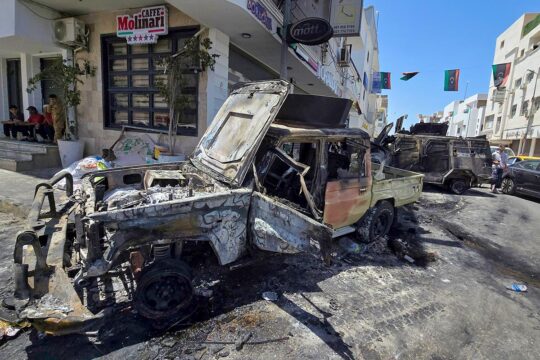The European Union, one of Gabon's top donors, said Friday it wants to step up election reform talks with the country after an EU report this week called into question its last presidential vote.
An EU statement said a delegation had met with Prime Minister Emmanuel Issoze Ngondete on Thursday to discuss a just-released report by EU observers that criticises President Ali Bongo's re-election in August.
The report says "anomalies" during the vote count "call into question" the poll result and lists 11 reforms to ensure fully free and fair elections in the future.
At Thursday's meeting in Gabon's capital, Libreville, "the European side invited the Gabonese side to an intensified political dialogue based on the conclusions" of the report, the statement said.
The talks would raise issues such as "electoral, institutional and judiciary reforms to be undertaken to hold credible and transparent elections in the future."
It would also touch on the ongoing inquiries into post-election violence and probes into alleged human rights violations following two days of violence that broke out after Bongo's controversial re-election.
The opposition have said 26 people were killed during the riots and protests that began on August 31, although official government figures put that toll at just three.
In a separate development on Friday, a lawyer for Gabonese opposition leader Jean Ping implicitly accused the French authorities of doing nothing as a "massacre" unfolded in Libreville that night.
Speaking in Paris, Emmanuel Altit said a French military base was "just a few hundred metres" (yards) from the opposition headquarters.
The French forces "could not have been unaware of the helicopters overflying the headquarters... (or) the attacks, the blasts," Altit said.
During the night in question, Ping told AFP that he had asked in vain for the French embassy to muster French military and civilian ambulances in Gabon, a former French colony, to help evacuate the wounded.
At least 20 people were killed in the building that night, and an unknown number are missing, according to the opposition and civil groups.
The Gabonese government denies the toll.
It says its forces were ordered to clear out the headquarters because the building was being used as a shelter for "hundreds of looters and pillagers" as well as "armed people who set fire to the National Assembly building."
Altit on Thursday filed suit for alleged crimes against humanity at the International Criminal Court in The Hague.


